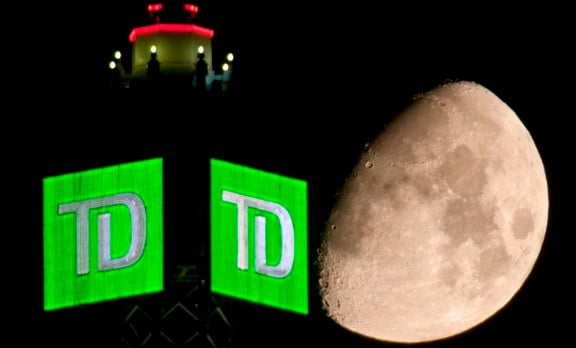Convicted scammer tars bank in sweeping accusation; also accuses lawyers
Scott Rothstein, the Florida lawyer convicted in a $1.2 billion investment fraud, said Toronto- Dominion Bank (TD) played a “critical” role in his Ponzi scheme, according to a transcript of a sworn deposition made public yesterday.
Rothstein, sentenced to 50 years in prison, said that on a scale from one to 10, the assistance he got from Canada's second-biggest bank rated a 10.
“They were assisting me in putting fake balance statements into the hands of my investors,” he said, according to a transcript of the deposition taken this month at the federal courthouse in Miami as part of Rothstein's former law firm's bankruptcy case. A copy of the transcript was provided by the law firm Conrad & Scherer, which represents some of the investors seeking to recover money invested in the scheme.
Rothstein, formerly of Rothstein Rosenfeldt Adler PA in Fort Lauderdale, Florida, pleaded guilty in January 2010 to five counts of racketeering, money laundering and wire fraud after admitting he sold investors interests in bogus settlements of sexual-harassment and whistle-blower lawsuits.
“We fundamentally disagree with many of the characterizations contained in Mr. Rothstein's deposition and will continue to vigorously defend the bank against claims related to Rothstein's acts,” Maria Leung, a spokeswoman for Toronto-based TD Bank, said in an e-mail. “Beyond that, we cannot comment on pending litigation.”
‘Real Letters'
TD Bank was “critical in providing real letters to go on top of the fake balance statements,” Rothstein said, according to the transcript. “They were critical in the fact that they had TD Bank employees actually handing me those phony statements in front of the investors.”
Rothstein also said that the size of TD Bank was important to the scheme because some investors worried about the solvency of a smaller bank he had been using.
The bankruptcy trustee liquidating the law firm sued TD Bank in July, alleging that the institution let Rothstein use its name, facilities and accounts to deceive investors. The trustee, Herbert Stettin, accused the bank of ignoring “red flags” and letting Rothstein open accounts and transfer “huge sums” of money among them.
Regular Overdrafts
In his deposition, Rothstein said that if the bank had ever investigated the way he was moving money into and out of accounts, including his regular overdrafts from trust accounts that are prohibited under Florida law from being overdrawn, it would have ended his scam.
“They were our main banking institution for literally hundreds of millions of dollars,” he said. “Had they notified anybody, cut off our banking, it would have been impossible, at that time, to recover.”
In his guilty plea, Rothstein said he used the law firm to run a scheme that financed his lavish lifestyle and let him buy political influence.
In portions of his deposition released Dec. 21, Rothstein said two of his former law firm partners knew of his illegal acts.
‘They Knew'
“They knew that we were moving money illegally in and out of the law firm,” Rothstein said of ex-partners Stuart Rosenfeldt and Russell Adler, according to the transcript of the deposition. “At various points in time, they came to know that there was a Ponzi scheme going on, although the word Ponzi was never utilized.”
Bruce Lehr, a lawyer for Rosenfeldt, said Dec. 21 in a phone interview that his client wasn't aware of the Ponzi scheme.
“Stuart Rosenfeldt had absolutely no idea of the wrongdoings of Scott Rothstein until Mr. Rothstein fled the country,” Lehr said. “Mr. Rothstein, who pleaded guilty and was sentenced to 50 years in prison, had no credibility then. The fact that after spending some time behind bars, he has decided to throw his law partner under the bus has not awarded him new credibility.”
Adler's attorney, Fred Haddad, said Rothstein was lying about his client.
“He didn't know anything about what Rothstein was doing,” Haddad said. “I like Scott personally. I've gotten drunk with Scott. But he said at the beginning of his depo that this would be the first time in his life that he's told the truth. I think he still hasn't reached the first time in his life to tell the truth.”
Rosenfeldt and Adler haven't been charged with wrongdoing.
Eight Charged
Eight people, including Rothstein, have been charged in the probe by the U.S. Of those, Rothstein and five others have been convicted. Two of the men who pleaded guilty worked as technology assistants at Rothstein's law firm and set up a fake TD Bank website showing Rothstein had $1.1 billion in a trust account, according to prosecutors.
Investors who relied on that information ended up investing more than $35 million, Assistant U.S. Attorney Lawrence LaVecchio said in June in federal court in Fort Lauderdale.
Rothstein testified in the deposition that he often brought investors to TD Bank branches so they could see bank employees handing him envelopes with a cover letter a bank employee wrote at his behest and a fake balance statement his office produced. He described how these “shows” would work at the bank and how bank employees allowed him to use conference rooms.
He also testified that he employed an associate to pose as a banker. That man, Stephen Caputi, has also pleaded guilty in connection with the scam.







